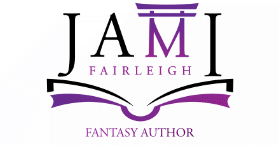
Book Review: The Book That Broke the World by Mark Lawrence

![]()
The Book That Broke the World by Mark Lawrence
Book Description
The Library spans worlds and times. It touches and joins distant places. It is memory and future. And amid its vastness Evar Eventari both found, and lost, Livira Page.
Evar has been forced to flee the library, driven before an implacable foe. Livira, trapped in a ghost world, has to recover the book she wrote—one which is the only true threat to the library’s existence—if she’s to return to her life.
While Evar’s journey leads him outside into a world he’s never seen, Livira’s path will taker her deep inside her own writing, where she must wrestle with her stories in order to reclaim the volume in which they were written.
The secret war that defines the library has chosen its champions and set them on the board. The time has come when they must fight for what they believe, or lose everything.
Review
In The Book That Broke the World, Mark Lawrence masterfully continues his Library Trilogy, weaving a narrative that balances intellect and emotion. The story resumes where The Book That Wouldn’t Burn left off, with protagonists Livira and Evar separated across dimensions and time.
I’ll admit, the shifting timelines in The Book That Broke the World threw me at first. It frustrated me that I couldn’t quite pin down “when” things were happening. But once I let go of my need to know and immersed myself in the story, I loved it.
Mark Lawrence does an incredible job of continuing his Library Trilogy with this novel. Although the story follows Livira and Evar on their separate quests, Lawrence also introduces us to several new protagonists, including two enslaved Ganar, Celcha and her brother Hellet. Then there’s the incomparable Wentworth. These new personalities add even more depth to an already intricate narrative world.
As before, Lawrence’s writing is sharp and beautiful. For me, the slower pacing of the first half increased the tension of the story. Given the well-rounded characters and deep themes, the deliberate pace works in the book’s favor.
The library is such a cool setting. Although it holds the collective memories of countless species, the library itself is not blameless for the plight of the novel’s protagonists. While under less skilled hands, the setting could become monotonous, Lawrence brings life to his endless labyrinth.
Side note: the ideological battle over whether to preserve or destroy knowledge feels relevant right now. The book left me thinking about how we define memory and knowledge. These impact our power to shape our own stories, and can influence how we perceive our role in our world.
Who Are the Villains?
If I had one tiny gripe, it’s that Lawrence’s portrayal of the skeers didn’t quite sit right. It reminded me of the Formics in Ender’s Game. Like the skeers, Orson Scott Card presented the Formics as soulless, destructive monsters we’re meant to fear.
But in both cases, the authors craft these foes with just enough complexity to make you pause and wonder, “Wait, are we oversimplifying them?”
Yes, it’s easy to slap a label on the skeers as monsters, but their custodial role in the library complicates that narrative. After all, they’re part of a grand, almost sacred system built to preserve knowledge for future generations. It’s a fascinating contradiction.
If the skeer are indeed mindless, heartless predators, how does that align with the role of carefully preserving the collective memory of countless species in the library? A role that requires intention, reverence, even a sense of responsibility. Qualities at odds with how they’re described in the story.
It challenges the idea that only beings driven by justice, empathy, or moral virtue can perform meaningful acts. It also begs the question whether the skeers have their own internal logic, one we’re not yet privy to.
Perhaps their role isn’t born of altruism but of instinct or a drive we don’t yet fully understand.
For me, this definitely added an intriguing layer to The Book That Broke the World. And maybe that’s the point. Maybe Lawrence is nudging us to question our assumptions about what makes a community “good” or “bad”.
For now, the skeer remains an enigma. A story detail that sparks more questions than it answers. Overall, The Book That Broke the World is a fantastic continuation of the Library Trilogy and leaves me itching for the last installment.
Content Warning
Blood, Cannibalism, Confinement, Death, Fire, Genocide, Grief, Isolation, Murder, Oppression, Slavery, Starvation, Torture, Violence, War
The header photo is a composite image. Base image by Martin Adams on Unsplash

